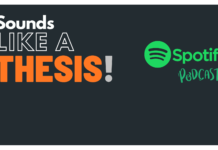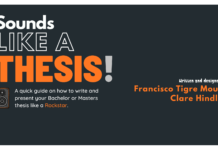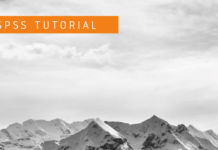Trust me, I’ve been there.
The deadline is approaching and you rush to finish writing your thesis or research paper. You told friends not to call, you have unplugged the Wi-Fi in your flat and all your concentration is on finishing the writing.
You don’t even like the topic anymore. Initially you loved it, but after so much work and pressure you are now about to punch the person that started the discussion involving your topic.
And then, at some point you finally finish. You print it, become really proud of your “baby” and it’s time to SUBMIT! You turn it in and go partying with friends to celebrate the end of the burden.
But after just a few days, you start worrying and wondering: How will reviewers grade my thesis or paper? What is going on?
Well my friends, after a years of academic experience I am about to give you an inside view of what happens.
Ps: The suggestions are based on my own personal experience, preferences and discussions with colleagues. So please keep in mind that different academics have different styles and preferences.
1. Title Description
The title described in your thesis cover or research paper is the first indication of what your work is about and what it will involve. Considering that it creates the first impression on the reader, it should truly provide an accurate idea of what it inside.
And interestingly, you would not believe the number of theses or research paper titles that do not describe what the document they have submitted truly discusses.
2. Overall Formatting of the Thesis: Attention to Details
Probably your reviewer will be sitting on a comfortable chair, or laying down on a nice couch at home. After reading your title, they will open the thesis and start going through the pages without any specific purpose. But by doing so, it is extremely easy to identify the level of detail in your document.
For example:
- Is the thesis or research paper properly referenced?
- Did the student use too many direct quotations in the literature review?
- Did the student simply copy and paste figures and tables into the document or did they create their own?
- Did the student simply copy and paste tables from SPSS or any other statistical software or did they create their own tables?
- Is the overall formatting correct (e.g. page numbering, headings and sub-headings)?
- Did they repeat the same author repeatedly in the literature review or were many authors cited?
You see, all of those things a reviewer can sport SIMPLY by scrolling through the pages without even having actually read the work. And trust me once more: the first impression counts a lot!
3. Introduction
It is very common for reviewers to read works where they are not exactly familiar with the context or some of the background. And the introduction is your moment to familiarize the reader with your topic. Therefore what reviewers will be looking at is:
- Did the introduction allow me to understand how the student came to this topic?
- Is it clear why the topic of research is important and should be addressed?
- Can I understand the current context related to the study and did the student provide enough data to allow comprehension of the dimension of the topic we are dealing with?
So if by the end of the introduction the reviewer can answer “yes” to those questions, you will be already in great shape!
4. Theoretical Background (Literature Review)
Always keep in mind that some of the main purposes of the theoretical background are to:
- Provide an understanding of the main concepts related to your study and what has been done in relation to your topic
- Show that you are familiar with the main authors and classic studies related to your topic
- Provide a logical discussion that shows the connection among the theoretical concepts you are discussing
- Highlight clearly the research gap that you will address with your study
All of those points should be clear in your theoretical background. Don’t tell me I didn’t inform you!
Furthermore, reviewers will be looking into other aspects related to structure and formatting, such as:
- What sources were used? Were they highly ranked journals? Credible sources?
- Once more: Did the student over use quotations?
- Is the student overusing the same author or using multiple sources?
- Did he/she seem to understand and provide a clear description of the concepts?
- Is the theoretical background structured in a logical sense, starting from the broadest topic to the most specific?
5. Methodology
The methodology represents the rationale with which you conducted your study. It is perhaps, to some, the most important chapter. It can happen that you did a fantastic job so far, but if you mess up here all the coming chapters will be wrong. So it is critical that you pay extra attention to this chapter.
There are some fundamental things reviewers will check:
First of all and most importantly: Was the methodology used suitable to answer the research question or address the research aim you have defined?
If the answer is NO, from now on everything in your work is pretty much useless. So the question above is something you should definitely discuss many times with your supervisor.
Moreover, reviewers will be looking at:
- Did the student describe the research design and research method accurately?
- Were the validity and reliability of the study and measurements discussed and addressed?
- Was the sampling criteria described?
- Were the elements of measurement described?
- Was the data collection process described?
6. Results
In the results section, the reviewers will be first looking if you applied the correct test(s) that will allow you to address your research question or aim.
They will also consider the following factors:
- Was the sample profile described?
- Was the sample size suitable to the statistical tests applied and to address the study?
- Were the statistical test(s) (if applicable) correctly conducted, interpreted and reported?
- Was the qualitative analysis (if applicable) correctly conducted, interpreted and reported?
Afterwards reviewers will investigate to see if you have understood the results and provided a relevant discussion of results.
And most importantly: If you are discussing your results in light of studies you presented in the theoretical background!
Another important aspect here is that usually at this stage the student has run out of breath and now has not much motivation to write or think. Consequently, the discussion and conclusion can become very weak, just like the limitations and managerial recommendations. But this is a very important part of your work, where you should show your input in relation to the findings.
In case you are tired, rest and get back to it! DO NOT do an ordinary job here (actually, anywhere in your work!).
7. Limitations and Managerial Recommendations
Finally, reviewers will have a look to see if you have addressed your limitations. You see, many students think that revealing the limitations of the study might reduce the important of what you did.
It is exactly the opposite!
It only comes to show that you have an overall understanding of what you did and perhaps if you had more time or resources you could have done things a bit differently. So list them as much as you can, with sensible explanations of why they are limitations.
And lastly, the managerial recommendations (in case you are writing a business related work) you are providing should more than anything else:
- Feasibility: Could your recommendations really be implemented by a company?
- Relevance: Would it add value to the company? If so, how? What is the expected trade-off between investment and return?
- Suitability of the recommendations to your results: Are the managerial recommendations simply from the top of your head or are they directly related to the findings that you have?
Final Thoughts
Of course, different reviewers have different styles and preferences. However, overall I believe that if you cover those points I have suggested you will be on the right track to having a wonderful grade!
I hope this article has been useful for you and, if so, write back to let us know!
It would be great to hear from you!
Ps: Ok, ok… If you want to send me a retro football shirt as “thank you” for the suggestions, I will certainly appreciate! Or just a coffee is also fine.





